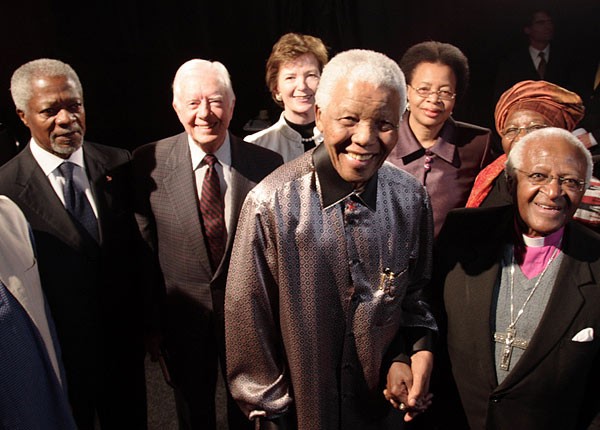Nelson Mandela is being remembered as a beacon for democracy, peace and decency in political life. But he also used his retirement well. In 2007, Mandela and a group of distinguished individuals created a group called, The Elders. They included Mozambican humanitarian and politician Graca Machel, who is also Mandela’s widow; former Ireland President Mary Robinson; Archbishop Desmond Tutu; former UN Secretary-General Kofi Annan; former Norway Prime Minister Gro Brundtland and former U.S. president Jimmy Carter. At the time, Mandela said that former leaders could “speak freely and boldly” to support peace building, help address major causes of human suffering and promote the shared interests of humanity.
One of their initiatives champions human rights for women and girls and expresses their concern about the role that religions of all descriptions too often play in their oppression. “Religion and tradition are a great force for peace and progress around the world,” the group said in a 2009 statement. “However, as elders, we believe that the justification of discrimination against women and girls on the grounds of religion or tradition, as if it were prescribed by a higher authority, is unacceptable…”
On one level, The Elders referred to the most virulent forms of oppression (often in traditional societies) driven by religious convictions — everything from genital mutilation to stoning for adultery. But they also talked about the historical insistence in some religions that God has ordained certain forms of leadership, such as being a priest, pastor or elder, as exclusive to men.
The Catholic Church, for example, insists that there can never be female priests for various reasons. In a church whose decision-making is dominated by clerics, that means women are forever excluded from leadership. Of course, Catholics aren’t alone. Too often, the unhappiness of disaffected, traditionalist Anglican priests is based on their opposition to the ordination of women.
In Canada, the United Church of Canada had its debate about women’s ordination in 1936. Yet, as recently as 2006, the Canadian Mennonite Brethren spent much of its national conference discussing whether member churches should be free to call women to serve as ministers and pastoral leaders. The resolution was finally carried with 77 per cent voting in favour. Nonetheless, the Christian and Missionary Alliance, of which Prime Minister Stephen Harper is a member, still does not ordain women.
The message from religious leaders that women must be subservient and that they cannot lead could have a dire consequence in the secular world, particularly in traditional countries. Such opinions send a strong signal to all of society’s institutions, from home to school, to boardroom and legislature.
But The Elders will have none of it. They are committed to the realization of equality and empowerment for all women and girls. They call upon all leaders — religious and secular — to promote and protect those inalienable rights. Theirs is a powerful message. How good to hear now that the group plans to continue with its work, despite the death of Nelson Mandela.
This article appeared on the United Church Observer blog on December 12, 2013.



